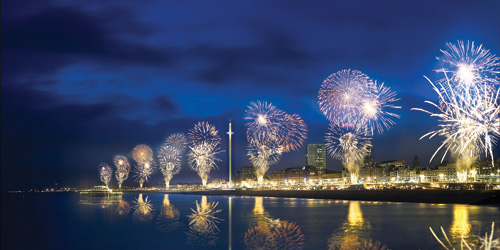
Brighton’s seafront will never be the same again. This year the i360 will start to rise up above the West Pier and dominate the skyline. Opening next year, it could become the most iconic landmark in the South East. How has it been financed and how will it make a profit? Eleanor Harris, Chief Executive of Brighton i360, explains all to Ian Trevett
The proposal to build the i360 tower has not been without controversy. It came in for a fair bit of local criticism, with many fearing it would be a white elephant, wasting hard-earned public money. Not only was the soaring viewing platform placed on the site of the much-loved West Pier, it was also regarded as a folly of the Council, who showed little regard for the burden placed on the city’s council tax payers.
During this time, the team behind i360 kept a low profile, verging on silence, which gave rise to many people jumping to false conclusions. How could an ascending viewing platform possibly raise enough money to repay the immense building costs?
The answer was that it was never expected to. The business plan was to generate the income from a wide variety of sources, not just the viewing platform. These included the brasserie, hospitality rooms, exhibition space, gift shop and bars, as well as the actual rides on the tower. And no council money was being spent. So why was there such controversy surrounding a development which will become an icon for an ambitious global destination? “We had to go through a democratic process with the councillors and give them time to understand the business plan without being influenced by the media,” explains Eleanor.
“We had to go through the legal due diligence, and during that phase, we were asked not to go out making public statements. “We wanted the councillors to hear from the horse’s mouth, look at all of it, not have their information filtered through the media. And I think that’s the right thing. It’s a very serious, big decision to make. They had to have time to look through it. And in fairness to the Greens and the Conservatives, who voted in favour, they spent an inordinate amount of time scrutinising the documents, having follow-up meetings, going through all the detail, and they really took their time to make the right decision.
“In a way it helped us because we were so busy trying to get to the finances closed. A hundred different contracts had to be signed, and I’m not sure that we really, honestly had the capacity to be going out doing PR.”
Click here to read the complete article
i360






